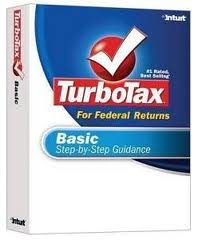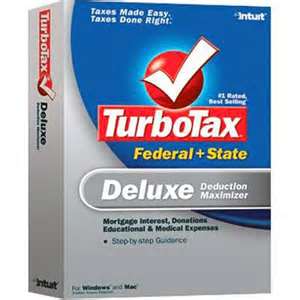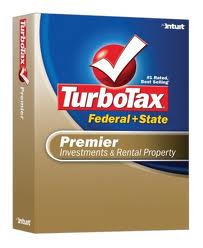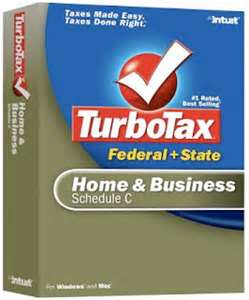

Income Tax Calculator

Loading..
| Filing Status | Income (AGI) | Personal Exemptions | Tax Deductions | Tax Credits | Payments | |
| Federal | Single | $0.00 | $0.00 | $0.00 | N/A | $0.00 |
| State | Single | $0.00 | $0.00 | $0.00 | N/A | $0.00 |

My Tax-Rates.org Income Tax Estimate
| Income Tax Calculations | State |
Federal |
| Gross Income | ||
| Deductions for AGI |
| Adjusted Gross Income (AGI) |
| Deductions and Personal Exemptions |
| Taxable Income |
| Federal Income Tax Show Calculations | ||
| Income Tax Show Calculations | ||
| Additional Taxes |
| Gross Tax |
| Tax Credits & Payments |
| Owed Tax |
| Gross Income | |
|
| Total Tax (Pre-Credits) | |
|
| Total Owed Tax | |
|
| After-Tax Income | |
|
| Effective Tax Rate | |
Annotations
eFiling Options
 TurboTax Free
TurboTax Free
Free edition for simple returns, with under $50k income
 TurboTax Deluxe
TurboTax Deluxe
Most popular edition, allows all major deductions and credits
 TurboTax Premier
TurboTax Premier
For taxpayers with stocks, mutual funds, rental properties, etc
 TurboTax Home & Business
TurboTax Home & Business
For self-employed people and business owners
Welcome to the new Tax-Rates.org Income Tax Calculator!
We're proud to provide one of the most comprehensive free online tax calculators to our users. You can use this tax calculator to:
- estimate your federal and state income taxes
- calculate your expected refund or amount of owed tax
- check your eligibility for a variety of tax credits
- compare your tax burden in different states
Once you have filled out the calculator once, feel free to make changes to your income, state, filing status, or tax credits to see how different values affect your total income tax bill.
 How can we improve this calculator? We value your comments and suggestions!
How can we improve this calculator? We value your comments and suggestions! Send Instant Feedback About This Tool
The Tax-Rates.org Tax Calculator is now fully updated! Federal calculations will now use the official federal tax brackets and deductions, and state calculations will use the most recent brackets available.
There have been several major tax law changes as of tax year 2013, including several that are the result of new Obamacare-related taxes. We support the following new tax laws:
- Net Investment Income Tax - A new 3.8% surtax on capital gains over a certain income threshold ($250,000 for MFJ)
- Additional Medicare Tax - A new 0.9% Medicare surtax on wage income over a certain income threshold ($250,000 for MFJ)
- 20% Maximum Capital Gains Tax - A new capital gains tax rate for capital gains income over the highest tax bracket ($450,000 for MFJ)
We have also added full support for calculating payroll taxes (Social Security and Medicare tax) as well as self-employment taxes. Payroll taxes are calculated based on your declared wage income, and self-employment taxes are calculated based on your declared business income.
Your filing status determines which set of tax brackets are used to determine your income tax, as well as your eligibility for a variety of tax deductions and credits.
- Single - You are unmarried and have no dependants
- Married Filing Jointly - If you are married, and are filing one joint return for both you and your spouse
- Married Filing Separately - You are married, and your spouse files a separate tax return. Normally results in higher taxes for both partners.
- Head of Household - You are unmarried, but support at least one qualified dependant. Provides better tax rates then filing as Single.
Payroll Tax
The Payroll Tax, also known as the FICA tax, refers to the two mandatory taxes paid by all employees which contribute to the Social Security and Medicare programs.
Payroll taxes are always deducted directly from each paycheck, so you rarely have to pay additional payroll tax on your income tax return. As a result, many taxpayers are unaware of the true amount they pay in payroll taxes.
Self-Employment Tax
The payroll tax consists of two halves - one half is paid by the employee, and one half is paid by their employer. Self-employed individuals must pay both the employee and employer halves of the payroll tax, which is commonly known as the self-employment tax. Because most self-employed people do not receive paychecks, they are often required to pay the self-employment tax on April 15th along with their regular income tax.
Tick the appropriate box if you would like us to estimate your payroll or self-employment taxes. We will calculate payroll taxes based on your wage income, and self-employment taxes based on your business income.
Some deductions are taken from your Total Income to compute your AGI. These deductions include qualified educator expenses, alimony paid, moving expenses, and certain self-employed expenses.
Do not add the deductible part of your self-employment tax - we will calculate this for you.
Long-term capital gains are capital gains realized from the sale or transfer of a capital asset that has been held for at least a year and a day.
Common examples include gains from the sale of stocks, mutual funds, and real estate. Long-term capital gains are taxed at a much lower rate then normal income and short-term capital gains.
Short-term capital gains are capital gains realized from the sale or transfer of a capital asset that has been held for a year or less.
Common examples include gains from short stock and security trades or flipping real estate. Unlike long-term capital gains, short term capital gains are taxed at your regular marginal tax rate  .
.
Interest and dividends, often received through investments such as money market accounts and mutual funds, are also usually taxed at your regular marginal tax rate.
Net business income is the total gain or loss you have realized from the operation of an unincorporated sole proprietorship or LLC business. On your 1040, your business income and loss is calculated on Schedule C  .
.
You can calculate your net business income by subtracting your qualified business expenses (including materials, tools, and labor costs) from your gross earnings.
(including materials, tools, and labor costs) from your gross earnings.
If you have a net gain from your business, it counts as ordinary income. A business generating a net loss can serve as a deduction (just enter a negative number).
Personal Exemptions are allowances that can be deducted from your AGI for each individual who is financially reliant on your income. The amount of the personal exemption is adjusted for inflation yearly.
You can always claim one personal exemption for yourself (as long as you're not claimed as a dependant on someone else's tax return). In addition, you can claim one exemption for your spouse if filing jointly, as well as one exemption for each qualified dependant (such as children or financially dependant relatives).
Standard Deduction
The Standard Deduction is a floored deduction amount set by Congress to simplify deductions for taxpayers who don't have enough deductions to itemize. The standard deduction varies by filing status, age, and vision and is adjusted each year for inflation. You do not need to keep records of your deductions if you claim the standard deduction.
Itemized Deduction
You can choose to itemize your deductions if your qualifying deductions add up to more then your standard deduction. You can only itemize deductions specifically allowed by the IRS - such as charitable deductions, certain medical expenses, mortgage interest, and state/local taxes. Most itemized deductions have limitations and phase-outs associated with them, and you must retain records and receipts for all of the deductions you itemize.
Should I itemize?
In general high net worth taxpayers, taxpayers who own a house, and taxpayers with high medical expenses are most likely to benefit from itemized deductions. About one third of all taxpayers claim an itemized deduction, with the most common deductions including mortgage interest and state & local taxes.
Earned Income Tax Credit
The Earned Income Tax Credit (or EITC) is a refundable tax credit for lower to middle income working families that is largely based on the number of qualifying children in your household. "Qualified children" for the EITC must be dependants under age 19, full-time dependant students under age 24, or fully disabled children of any age.
You must be between 25 and 65 years old, a citizen, a United States resident, and have under $3,200 in investment income to qualify for the EITC. We will calculate what, if any, EITC you may qualify for based on your income and the number of qualifying children you specify.
Child Tax Credit
The Child Tax Credit is a $1,000 tax credit available for each qualifying child you claim as a dependant. A qualifying child must be a dependant, under age 17 and lives with you at at least half the year. This credit is phased out for higher income taxpayers (starting at $110,000 for married couples, and $75,000 for single and other filing types).
Two educational credits are available, although you can only claim one credit per year for each qualifying student (including yourself). The American Opportunity credit is the preferable option for students enrolled in four-year colleges.
To calculate the credits, just include the amount of qualified educational expenses you would like to claim in the fields for the American Opportunity and/or Lifetime Learning tax credits.
American Opportunity Tax Credit
The American Opportunity Tax Credit is worth up to $2,500. You can claim the American Opportunity credit for yourself or a dependant student with qualifying educational expenses incurred pursuing a degree at a qualifying undergraduate school. You can only claim the American Opportunity credit for a total of four years for each qualifying student.
Lifetime Learning Tax Credit
The Lifetime Learning Tax Credit can be worth up to $2,000, and can be claimed for any qualifying educational expenses with no limit on the number of years it can be claimed. Qualifying expenses for the Lifetime Learning credit include graduate school tuition, continuing and adult education classes. You do not have to be pursuing a degree to use your educational expenses for this credit.
This free tax calculator is supported by Google Consumer Surveys. Answer a simple question or complete an alternate activity to dismiss the survey box and submit your tax calculator results.
You only have to answer the survey once to unlock the tax calculator for 24 hours. Please note, you may need to scroll down to see the full survey question and dismiss the box.


 Donate BitCoin:
Donate BitCoin: